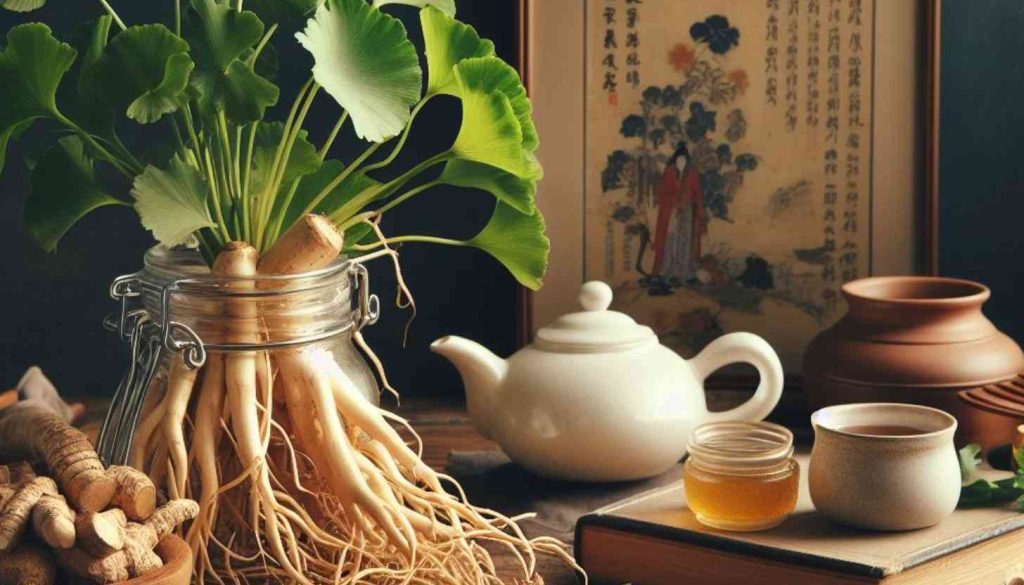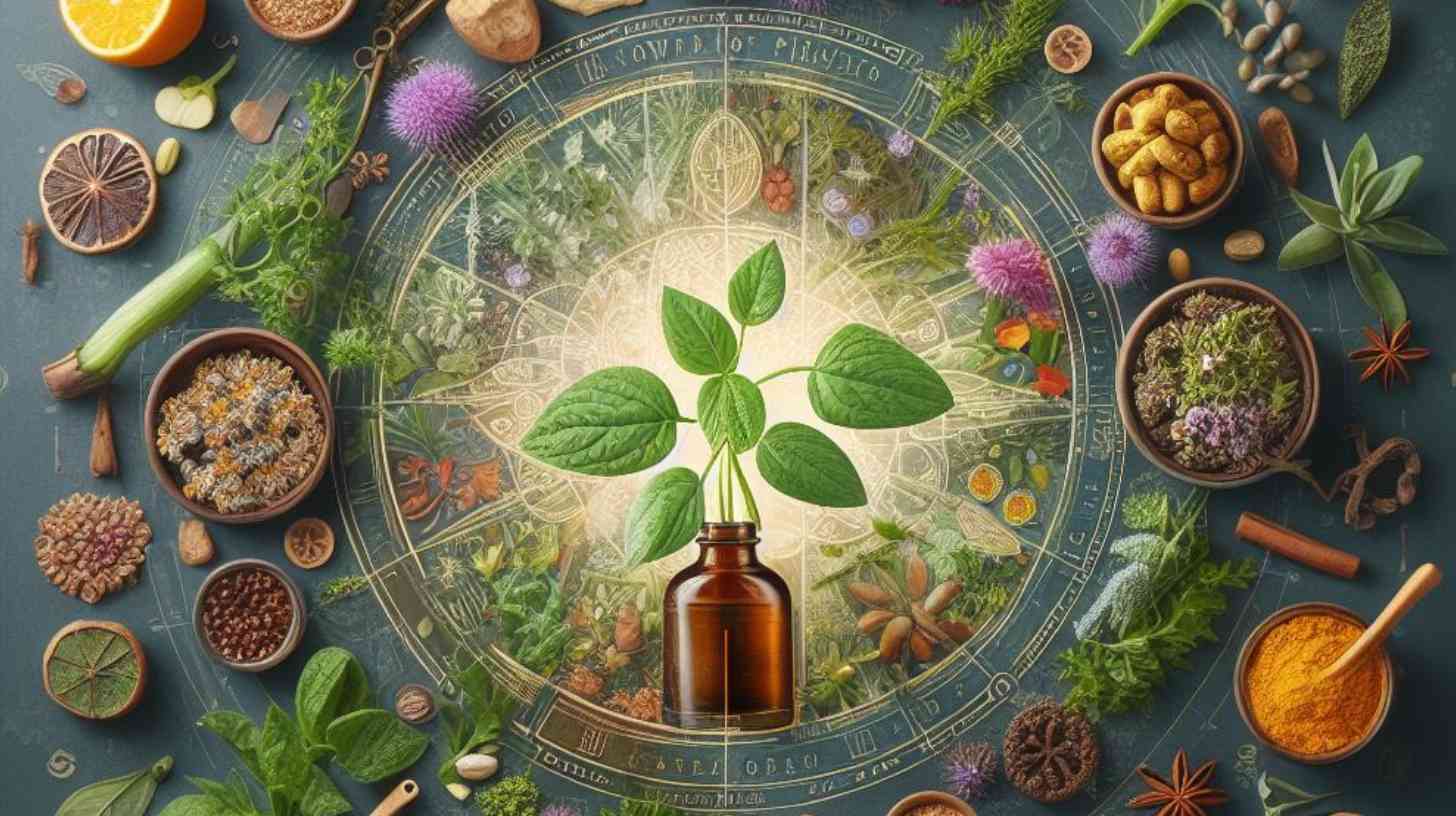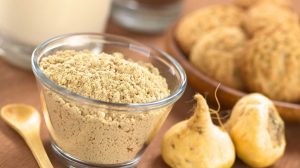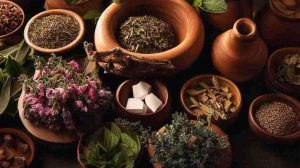Embracing Nature: The Untold Benefits of Herbal Medicine
Herbal medicine, a tradition as ancient as humanity, offers a treasure chest of benefits. It’s like nature reaching out to us with a blend of herbs and spices, offering solutions for various ailments. This article unfolds the spectrum of benefits provided by herbal medicine, showcasing why considering this holistic approach might just be what your health regimen needs. Get ready to journey through the realms of traditional and complementary medicine, discovering the power of plants along the way.
Table of Contents
What is Herbal Medicine?
Herbal medicine, a term often cloaked in mystery, is all about using plants for healing. The essence of herbal medicine lies in tapping into the natural compounds present in plants. These compounds become the active ingredient steering your body towards healing. It’s like having a garden that holds the antidote to various ailments.
Why Use Herbal Medicine?
Ever considered why your grandma insisted on that herbal tea? Herbal medicine is not just a fad; it’s a bridge to holistic health. It’s about viewing your body as a temple and using herbal remedies to maintain its sanctity. The benefits of herbal medicine are vast, ranging from fewer side effects to being a gentle alternative to conventional medicine. Here is a table with the plethora of benefits of herbal:
| Reason | Explanation |
|---|---|
| Natural Origin | Herbal medicine is derived from plants and natural sources, resonating with those who prefer organic and natural remedies. |
| Holistic Approach | Promotes holistic health by addressing the root cause of ailments rather than just alleviating symptoms, fostering a sense of overall well-being. |
| Fewer Side Effects | Generally associated with fewer side effects compared to synthetic drugs, making it a gentler option for many. |
| Affordability | Often more affordable than conventional medicine, making healthcare more accessible to individuals across different economic backgrounds. |
| Traditional Wisdom | Carries the wisdom of traditional healing practices that have been honed over centuries. |
| Preventive Care | Can be used for preventive care to boost the immune system, improve digestion, and maintain a balanced state of health. |
| Individualized Treatment | Allows for individualized treatment plans tailored to the unique needs and conditions of each person. |
| Accessibility | Many herbs used in herbal medicine are easily accessible and can be grown at home, providing a self-sustaining approach to healthcare. |
| Educational Experience | Engaging with herbal medicine can be an educational experience, offering a deeper understanding of plants and their healing properties. |
| Empowerment | Empowers individuals to take charge of their own health in a proactive and natural way. |
How is Herbal Medicine Used?
From teas to tinctures, the ways of administering herbal medicine are as diverse as the benefits they offer. Whether it’s sipping on ginseng tea or applying a herbal extract, each method of using herbal unfolds a path to healing. The beauty of herbal medicine is in its flexibility and the tradition that echoes with each use.
Common Methods of Using Herbal Medicine
| Method | Description | Examples |
|---|---|---|
| Tea | Herbs are steeped in hot water to extract their active ingredients, which are then consumed in liquid form. | Chamomile tea for relaxation, Peppermint tea for digestion |
| Tincture | Herbs are soaked in alcohol or vinegar to extract their active ingredients, which are then taken by mouth in liquid form. | Echinacea tincture for immune support, Valerian tincture for sleep aid |
| Capsule | Dried herbs are ground into powder and encapsulated for easy consumption. | Turmeric capsules for inflammation, Ginseng capsules for energy |
| Tablet | Compressed powdered herbs formed into tablets. | Ginkgo Biloba tablets for memory enhancement, St. John’s Wort tablets for mood support |
| Topical | Herbs are applied directly to the skin in the form of creams, oils, or gels. | Arnica cream for bruises, Aloe Vera gel for skin soothing |
| Inhalation | Herbs are inhaled as steam or essential oils are diffused into the air. | Eucalyptus steam for congestion, Lavender oil for relaxation |
| Bath | Herbs or essential oils are added to bath water. | Lavender bath for relaxation, Oat bath for skin soothing |
| Poultice | Crushed fresh or dried herbs are applied directly to the skin. | Plantain poultice for insect bites, Comfrey poultice for wound healing |
The Big Players: Ginseng and Ginkgo Biloba

Ever heard of Ginseng or Ginkgo Biloba? These aren’t just exotic names but powerhouses of healing in the realm of herbal medicine. Ginseng, known for its energy-boosting properties, and Ginkgo Biloba, celebrated for enhancing memory, are just the tip of the iceberg when it comes to the efficacy of herbs and plants in healing. Let’s delve deeper into the world of these herbal giants and explore their myriad benefits and uses.
Ginseng: The Energy Dynamo
Ginseng, primarily found in North America and Eastern Asia, is often touted as a universal remedy. Its roots are known for their energy-boosting and immune-supporting properties. Whether you’re facing a physically demanding day or a mentally taxing task, a dose of Ginseng can act as your natural recharge button. It’s like having a pocket-sized powerhouse that’s ready to uplift your vitality whenever needed. The herb is not just a one-trick pony; it also harbors potential benefits in reducing stress and enhancing overall well-being.
Ginkgo Biloba: The Memory Maestro
On the other hand, Ginkgo Biloba, with its fan-shaped leaves, is a living fossil. This herb has witnessed the epochs, offering a leaf of memory enhancement to humanity. Known to improve blood circulation and cognitive function, Ginkgo Biloba is often your go-to herb for that much-needed mental clarity. Its antioxidant properties add another feather to its cap, making it a holistic herb for overall brain health. Whether it’s forgetting where you placed your keys or finding it hard to concentrate, Ginkgo Biloba might just have the herbal solution you seek.
These two herbs, Ginseng and Ginkgo Biloba, are often seen as the stars of the herbal medicine world. Their extensive benefits and versatile uses make them a favorite among herbalists and those seeking a natural route to enhanced health and wellbeing. From teas to supplements, these herbs have found their way into modern-day remedies, bridging the ancient wisdom of herbal medicine with the pace of contemporary life.
Table: Key Benefits and Uses of Ginseng and Ginkgo Biloba
| Herb | Key Benefits | Common Uses |
|---|---|---|
| Ginseng | – Boosts energy | – Dietary supplement |
| – Enhances physical and mental performance | – Tea | |
| – Supports immune system | – Energy drinks | |
| – Reduces stress | – Herbal remedies for fatigue and stress | |
| Ginkgo Biloba | – Improves memory and cognitive function | – Dietary supplement |
| – Enhances blood circulation | – Tea | |
| – Antioxidant properties | – Herbal remedies for memory and concentration | |
| – Reduces symptoms of asthma and tinnitus | – Used in traditional medicine practices |
The Herbal Supplement Spectrum
Herbal supplements, the modern-day knights in shining armor, offer a convenient way to imbibe the goodness of herbal medicine. They encapsulate the essence of herbs, providing a concentrated dose of nature’s best. However, while considering taking herbal supplements, it’s vital to tread with knowledge and perhaps a guide from a medicine practitioner.
Traditional Medicine Vs. Herbal Medicine
The tug-of-war between traditional medicine and herbal medicine is age-old. While traditional medicine is backed by modern science, herbal medicine offers a gentler approach rooted in nature. It’s about choosing a path that resonates with your body and your beliefs.
Holistic Health: A Walkthrough Herbal Healing

Holistic health is like having a conversation with your body. It’s about understanding the signals your body sends and responding with a touch of nature. Herbal medicine forms a crucial part of this conversation, offering a platform for natural healing.
The Fewer Side Effects Factor
One of the striking benefits of herbal medicine is the fewer side effects it entails. Unlike the harsh chemicals found in conventional drugs, herbs tend to be gentle on your system while still packing a potent punch against ailments.
Natural Healing with Different Herbs
Each herb in the realm of herbal medicine holds a unique key to healing. The variety is like having a botanical library at your disposal. Here’s a glimpse into the world of medicinal herbs and the health benefits they offer:
Table: Common Medicinal Herbs and Their Benefits
| Herb | Health Benefits |
|---|---|
| Lavender | Calming, helps with anxiety and sleep disorders |
| Ginseng | Boosts energy, supports immune system |
| Ginkgo Biloba | Enhances memory, improves blood circulation |
| Garlic | Boosts immunity, lowers blood pressure |
| Turmeric | Anti-inflammatory, supports joint health |
| Chamomile | Soothing, aids in digestion, helps with sleep |
| Peppermint | Eases digestive issues, relieves headaches |
| Echinacea | Supports immune system, fights infections |
| Ginger | Anti-inflammatory, helps with nausea and digestion |
| St. John’s Wort | Helps with depression, supports mood stability |
A Peek into the Future of Herbal Medicine
As the world tilts towards organic and natural, the horizon of herbal medicine expands. The blend of traditional knowledge with modern science is paving the way for a deeper understanding and acceptance of herbal medicine.
In a Nutshell
- Explore the myriad benefits of herbal medicine, from fewer side effects to natural healing.
- Consider the power of plants like Ginseng and Ginkgo Biloba in addressing various ailments.
- Choose between traditional medicine and herbal approaches based on personal preferences and health requirements.
- Delve into the world of herbal supplements with a sense of knowledge and guidance.
- Embrace the holistic health approach, allowing herbal medicine to become a part of your wellness dialogue.
Frequently Asked Questions
-
What is herbal medicine and its benefits?
Herbal medicine, also known as traditional or alternative medicine, is the use of plants or plant extracts for medicinal purposes. The benefits of herbal medicine mainly lie in its natural properties that can help treat various ailments and improve overall well-being. Herbal remedies have been used for centuries in different cultures and are known for their holistic approach.
-
How are herbal supplements different from prescription medications?
Herbal supplements are dietary supplements that are derived from plants and are taken orally. Unlike prescription medications, which usually contain synthetic compounds, herbal supplements are made from natural ingredients. However, it is important to note that herbal supplements may not undergo the same rigorous testing and regulation as prescription medications.
-
Are there any side effects of taking herbal supplements?
Like any form of medication or dietary supplement, herbal supplements may have side effects. It is important to consult with a healthcare practitioner or a herbal medicine practitioner before taking any herbal supplements. Some herbs may interact with prescription medications or have adverse effects on certain individuals, so it is crucial to be well-informed and cautious.
-
How should I determine the dosage of herbal medicine?
The dosage of herbal medicine can vary depending on the specific herb, the form it is in (such as capsules, extracts, or teas), and individual factors such as age, weight, and health condition. It is best to consult with a qualified herbal medicine practitioner or follow the recommended dosage instructions provided on the product packaging.
-
What ailments can herbal medicine be used to treat?
Herbal medicine can be used to treat a wide range of ailments and health conditions. Some common uses of herbal medicine include managing digestive issues, improving sleep quality, boosting the immune system, reducing stress and anxiety, relieving pain and inflammation, and supporting overall well-being. However, it is important to note that herbal medicine may not be suitable for all conditions, and individual responses may vary.
Explore Herbal Solutions
Now that you’ve delved into the world of herbal medicine and explored its myriad benefits, you might be curious to experience the power of herbs firsthand. Explore a variety of premium herbal products tailored to promote holistic health and well-being at Herbal Pit Stop.
References
- Johns Hopkins Medicine: Provides insight into what herbal supplements are and how they are derived from botanicals to treat diseases or maintain health (Johns Hopkins Medicine – Herbal Medicine).
- Yale University: Discusses the accessibility and affordability of herbal medicine as a healthcare alternative, especially considering the rising costs of healthcare (What Are the Benefits of Herbal Medicine? – Yale University).
- Healthline: Provides an overview of how herbal medicine can benefit the body, including boosting immunity, encouraging restful sleep, enhancing mood, reducing stress, and increasing antioxidant intake (Herbal Medicine 101: How to Harness the Power of Healing Herbs – Healthline).




